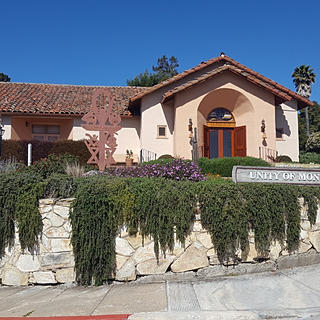Rev. Vicky's Message February 22, 2024
- M Price
- Feb 22, 2024
- 2 min read
Whether it involves letting go or adding on, Lent offers us an invitation to focus our attention on our spiritual journey and renew our commitment to becoming “less of the human and more of the divine.”
As I reflect on the many challenges facing our world and listen for “what is mine to do,” I am reminded of when Rory and I first heard the call to ministry. We were both already committed to making the world a better place, which had brought us to working in government.
It was only after discovering Unity, however, that we began to realize that government doesn’t lead – it follows; and that problems are never solved at the level of consciousness that created them.
Meaning, if we truly wanted to “change the world,” we needed to focus on changing consciousness – our own and the world’s – which is why I continue to teach what I most need to learn.
The last line of the Sermon on the Mount (Matthew 5.48) says, “Be perfect, therefore, as your heavenly Father is perfect.” I had two takeaways from this challenge that relate to our Sunday lesson:
1) What is meant by God’s “perfection” can be gleaned from the preceding “sermon” which advances ideas about the “character of God” based on what we are being called to emulate (e.g., purity, integrity, equanimity, unlimited forgiveness, loving enemies, etc.)
2) The word “perfect” as used in this scripture comes from the Hebrew word “tamim,” which means “whole, sound, healthful, having integrity”, and the Greek word, teleios, which means “complete, fully developed.” In this light, more modern interpretations understand “perfect” to mean “mature,” in the sense of mentally & emotionally developed. In short, we are being called to grow into the spiritual maturity of beings “made in the image and likeness of God.”
Join us this Sunday, as we explore how we can add on spiritual practices that help us grow in spiritual maturity – and be the change we want to see in the world.
Namasté,
Rev. Vicky














Comments